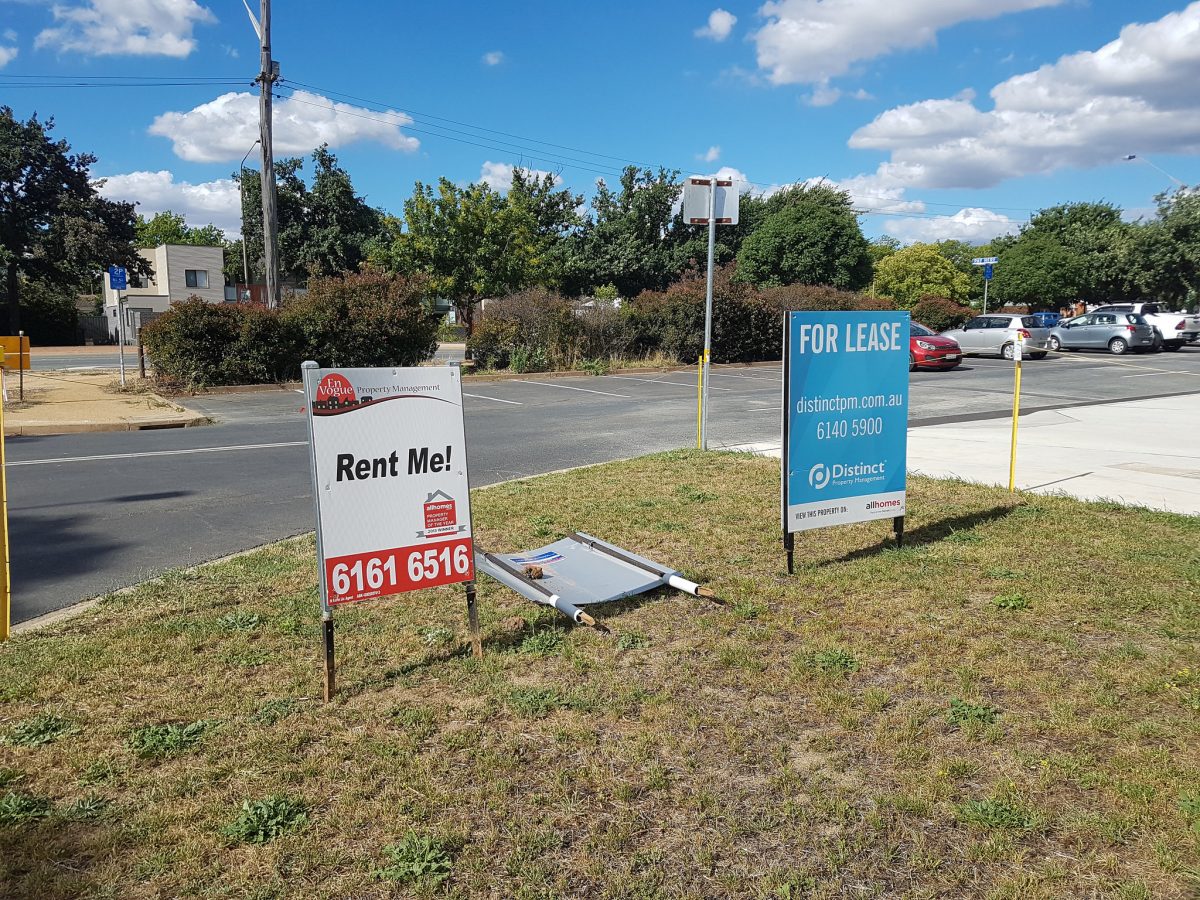
Canberra has consistently been one of the most expensive capital cities to rent in Australia and is currently the second most costly for units and houses. Photo: File.
The laws that governed renting in the ACT were poorly enforced and change was urgently needed to better protect tenants, community organisations told the Senate inquiry into the worsening rental crisis in Australia.
“The situation’s pretty dire in the ACT and it has been for a long time,” ACT Shelter CEO Travis Gilbert told the inquiry.
“We spend millions on tourism ads. Maybe there’s a new slogan now, but it used to be ‘See Yourself in Canberra’, luring graduates to begin their careers in the APS or the local public service. It may need a byline: ‘Find Yourself In Housing Crisis’.”
Mr Gilbert said the penalties for landlords and agents who breached the Residential Tenancies Act were rarely enforced, in his experience.
“The legislative penalty regime is somewhat limp,” he said. “I’m not aware of it ever being applied, though I’m not close to the ground.
“There certainly is a belief that it won’t be [applied], anecdotally, that I’ve heard.”
Woden Community Service (WCS) executive manager Lynton Sheehan said the ACT’s rent controls didn’t go far enough to provide protection for tenants.
Currently, the ACT’s rent increase regime for periodic tenancies permits lessors to raise rent by 110 per cent of the increase in the rent component of CPI for Canberra since the last rental increase or the start of the tenancy.
“The rental increase formula in the ACT applies only to existing tenancies, so where there is a tenancy ending and the property is advertised, there is no governing the rent increase,” Mr Sheehan said.
“The recent statistics are telling us across Australia that the rent increases of new properties are exceeding 20 per cent.”
WCS’s submission to the inquiry said almost 60 per cent of Australians were facing rental stress.
“In the ACT, renters earning less than $106,000 per annum will pay more than 30 per cent of their income in rent. For someone in receipt of commonwealth assistance such as Job Seeker, the figure is starkly different at 117 per cent of their income being required to meet the average rent cost.”
Mr Sheehan said while landlords were required to use the formula to calculate rent increases, if they didn’t, the onus was on the tenant to question that.
“The landlord is required to use the formula,” he said. “However if they don’t, the tenant is the only person who would question that in ACAT [ACT Civil and Administrative Tribunal] and they would have to apply to ACAT.”
He said tenants have approached WCS with rental increases exceeding that formula, something the service helped them raise with ACAT.
However, as Legal Aid ACT head of practice Derek Schild pointed out, “many tenants aren’t well placed to enforce compliance”.
“Tenants aren’t likely to take landlords to ACAT,” he said. “They’re usually busy, heads down looking for other places to rent, and they may not even know it occurred.”
Mr Schild called for the creation of an enforcement body to ensure landlords and agents complied with residential tenancy regulations, as well as a register of landlords and agents.
“That’s an initiative that would work well in this space, it exists in other states,” he said.
“We have penalty provisions in the Residential Tenancies Act and they’re not enforced, unlike most other acts in jurisdictions around the country.
“If you have penalty provisions, you expect if someone breaches that then there’s a penalty … but that doesn’t happen.”
Mr Schild said while solicited rent bidding has been prohibited since April 2023, it was concerning that unsolicited rent bidding remained permitted in the ACT.
“Landlords can still accept a higher bid from a tenant where the tenant initiates this,” he said. “It’s possibly too early yet to see the effects of this, how many tenants may end up paying above the advertised price, but in a tight rental market this remains a concern.”





















